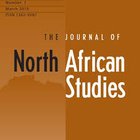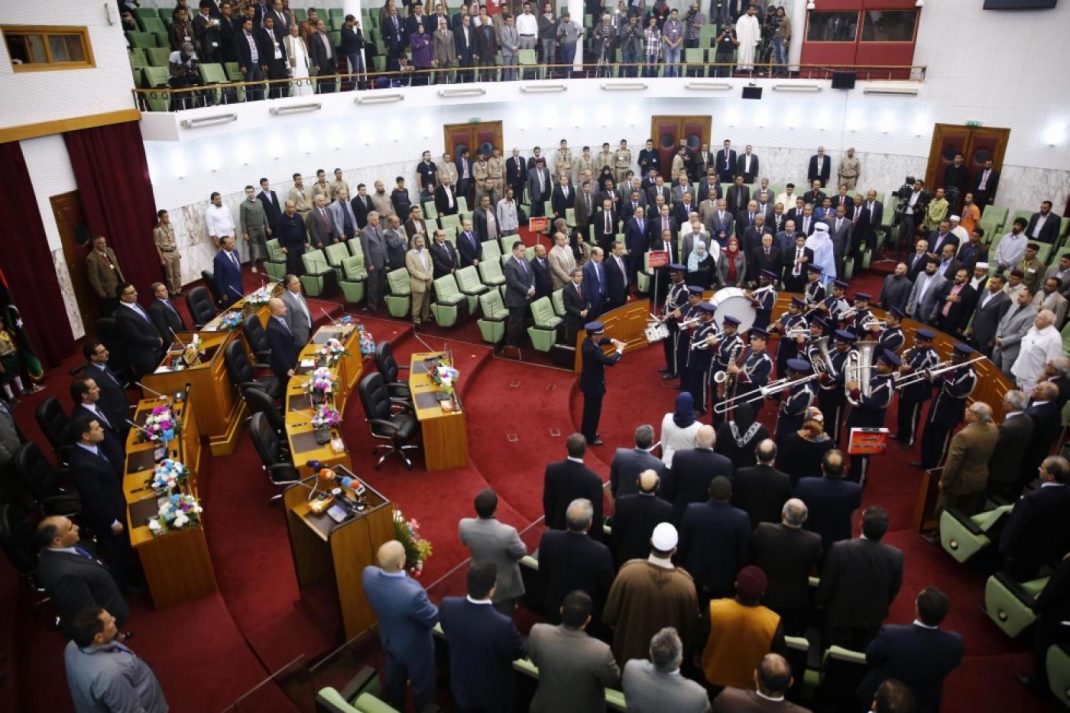3 myths about the past and a new constitution
By Carmen Gehaa & Frédéric Volpib

 Libya’s 2011 revolution enabled ordinary citizens and an emerging civil society to voice their demands on a variety of key issues including Libya’s new constitution.
Libya’s 2011 revolution enabled ordinary citizens and an emerging civil society to voice their demands on a variety of key issues including Libya’s new constitution.
.
PART ONE
Libyans faced the challenge of redefining and re-empowering national political institutions through the establishment of a new constitution.
This article analyses a series of constitutional grassroots debates that were led by the Forum for Democratic Libya (FDL), thereby unpacking insights not only into the constitutional process itself but also into the underlying expectations regarding a new political order in the country.
We argue that the brief period of relative peace and stability in Libya between 2011 and 2013 presents a ‘golden age’ of constitutional activities that created meaningful interface among Libyan citizens after decades of oppression.
We argue however that although constitutional debates allowed for citizen engagement in the process of constitutional development it had little bearing on the outcomes of this process.
Citizen demands remained unanswered due to deeply entrenched informal political practices causing activists to face the arduous task of trying to influence a formal process of constitutional development.
Priority demands expressed by citizens in our research pointed to the need for Libyan political actors to address the creation of a new system of governance, civil liberties and three regional priorities namely immigration and citizenship in Southern Libya, reconciliation and justice in Western Libya, and natural resources in Eastern Libya.
The priorities remain unaddressed in Libya and provide insights of priority issues that will require serious efforts in the future of a stable Libya.
Looking back at constitutional (dis)orders in Libya
Libya’s 2011 revolution enabled ordinary citizens as well as social and political actors to voice a multiplicity of demands, not least regarding freedom and democracy.
In a post-revolution phase characterised by, among other things, instability, insecurity and political contestation, Libyans faced the challenge of redefining and re-empowering national political institutions, not least through the establishment of a new constitution.
Looking back at these constitutional debates today thus provides insights not only into the constitutional process itself but also into the underlying expectations regarding a new political order in the country.
During a brief period of relative peace and stability in Libya’s political transition, a wealth of activities concerning a new constitutional order took place in the country.
This ‘golden age’ of constitutional activity began with the August 2011 Constitutional Declaration by the National Transitional Council (NTC).
It would end in June 2014 with the contestation of the result of the elections of a new General National Congress (GNC). The NTC had been formed early on in the uprising of 27 February 2011, and by early March had proclaimed itself to be the representative of the Libyan people.
The NTC was intended as an interim transitional entity and as the political ‘face’ of the Libyan revolution, at home and abroad.
The NTC Constitutional Declaration stated that the Council would hand over power to a democratically elected National Congress, which would in its turn appoint a constitutional body to draft a new constitution.
After an amendment to the Declaration in March 2012 stipulating that the constitutional drafting body would be elected rather than appointed, the elections of the Constitutional Drafting Assembly (CDA) finally took place in February 2014.
These elections occurred at a time of widespread protests against the GNC refusal to hold parliamentary elections and its decision to extend its own mandate instead.
The CDA enjoyed a short-lived support despite the low turnout at these elections, the boycotts by some ethnic minorities and the limited involvement of citizens and activists in formal constitutional dialogues.
However, by the time of the elections of a new national congress in June 2014, it was clear that this ‘golden age’ of activities about the constitution was coming to an end.
The parliamentary elections were marked by low voter turnout and a deteriorating security situation. By the summer of 2014 fighting had broken out between forces loyal to the outgoing GNC and those loyal to the newly elected congress.
These armed clashes spread with increasing severity to produce another civil conflict and closed this window of opportunity to debate and enact a new constitution.
The following analysis thus seeks to capture insights and priorities about the constitution and about governance as they emerged during this period of transition.
Such elements point to the dilemmas that the constitution and transition more broadly will have to address in order to produce a more stable form of government in the country.
The constitution in its simplest term is a nation’s highest legal reference to organise the shape of its governing institutions, the nature of citizen-state relations and the sovereignty of the political system.
After the 2011 revolution, debates about the constitution generated new forms of political and civic mobilisation.
The newly found freedoms of civil society, media and political parties in Libya widened the scope of participation in the process of constitutional development.
Yet, with the procedural and political delays of the drafting process, this increased participation also underscored the divisions and contested priorities present in post-Qaddafi Libya.
In this particular context, three myths about constitutional order in the country shaped Libyan’s approaches to the problem of political order.
The first myth was that of the first Libyan constitution of 1951 as setting an example for a modern (western, liberal) and democratic (wide consultation, regional representation) constitutional process.
In this perspective, the new constitutional opening initiated in 2011 represented an opportunity to set the clock back to a time when Libya was a political example for the region.
In this narrative, it was a time when local, regional and international issues could be peacefully resolved; a time before the failures of the monarchy (authoritarian centralisation) and of Qaddafi (neo-sultanism).
The second myth was that of the clean slate. There was the perception that the new constitution would inaugurate a truly new political order as there was no genuine constitutional and institutional order in the Jamahiriya.
There was therefore a tendency to downplay the practical importance of the informal institutional and normative systems that structured social and political processes under Qaddafi.
Unsurprisingly it was then ‘rediscovered’ that religious norms (e.g. articulated in demands for the return sharia law), as well as regional, tribal and local power structures and preferences (articulated in the demands for federalism, Berber and other minorities’ rights, etc.) shaped and placed specific constraints on the constitutional process.
The third and probably most potent myth was that of the new Libyan citizen. Participation in and formulation of a new constitutional system was meant to shape and entrench a form of Libyan citizenship that could not exist before.
It was meant to fulfil the promises of the first constitution by enabling the merging of multiple identities and preferences that would underpin an effective model of governance.
This narrative fed from the first myth by downplaying the multiple causes of failure of the constitutional order of the 1950s and overemphasising role of the constitution in resolving outstanding issues and dilemmas.
In the following, we use these myths to investigate the contemporary reformulations of formal political order in Libya as outlined by the citizens taking part in constitutional dialogues organised by non-governmental organisations in 2012–13.
We contextualise these experiences with constitution-making to highlight the processes and thematic issues that Libyans found important as they sought to entrench new forms of political order in post-revolution Libya.
…
to continue
***
Carmen Gehaa – Department of Political Studies and Public Administration, American University of Beirut, Beirut, Lebanon.
Frédéric Volpib – School of International Relations, University of St. Andrews, St Andrews, United Kingdom.
___________





